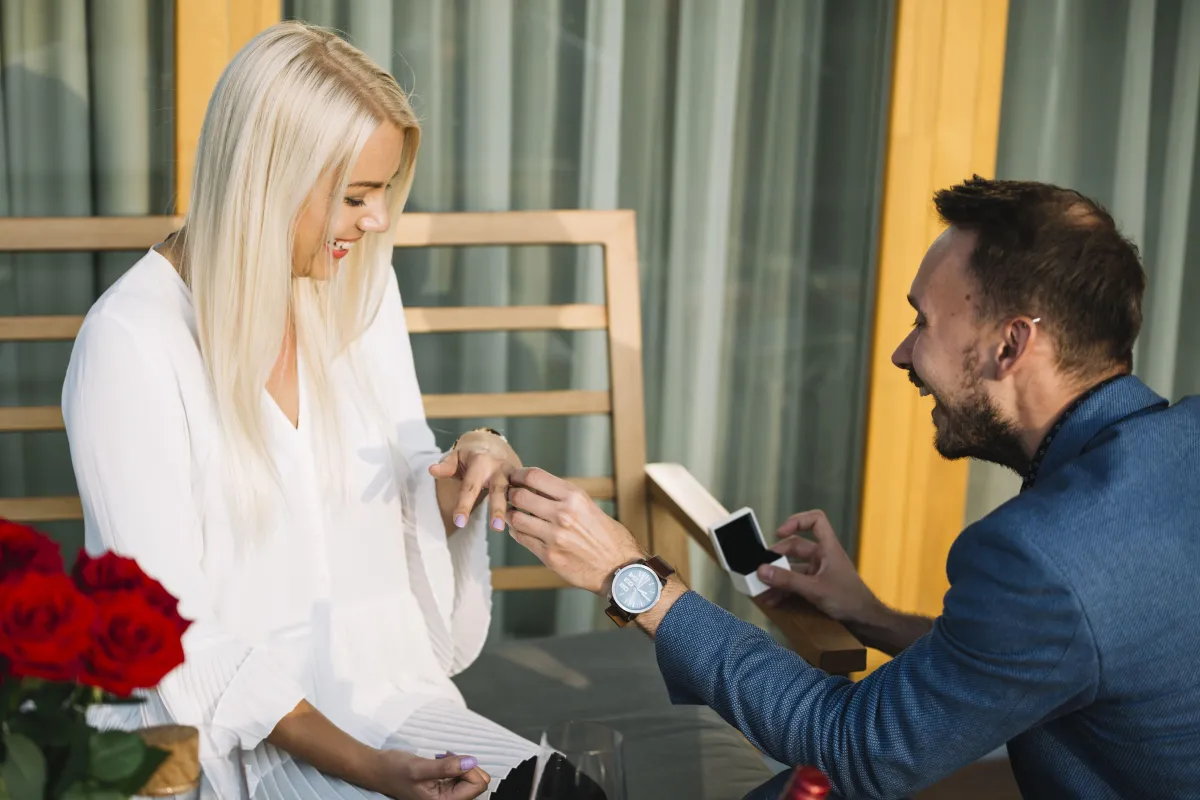The Grieving Process of a Breakup: Emotional Stages, What to Expect, and How to Heal

Introduction
One minute you’re okay, scrolling through your day, and the next, you’re crying in the grocery store over a song you didn’t even like before. Breakups do that.
Breakups feel like grief—because they are.
You’re not just missing a person. You’re grieving a bond, a routine, a vision of your future that no longer exists. And if you feel like you’re falling apart, please know: you are not broken—you’re grieving.
This guide will help you:
Understand why breakups hurt so much
Identify the emotional stages of breakup grief
Learn how to cope in healthy and healing ways
See what long-term healing and growth can look like
Let’s walk through this—together.
Why Breakups Trigger Real Grief
Losing a Relationship = Losing a Life Path
You weren’t just sharing dinners and Netflix accounts. You were building a life. Losing that relationship means losing:
A shared future
Inside jokes, rituals, and routines
A version of yourself that existed in that partnership
That’s not just heartbreak. That’s identity collapse.
You’re not grieving only a person—you’re grieving what could’ve been.
The Body Reacts to Heartbreak Like Trauma
Breakup pain is not just in your head—it’s in your body, too.
Cortisol spikes (your stress hormone)
Sleep gets disrupted
Appetite shifts—eating too much or not at all
You might feel shaky, tired, even physically ill
According to the Journal of Neurophysiology, romantic rejection activates the same brain areas as physical injury. That heaviness in your chest? It's real.
You’re Grieving Someone Who’s Still Alive
One of the strangest parts of divorce grief is that your ex might still be around:
Co-parenting
Showing up on social media
Moving on while you're still shattered
It’s like mourning someone who’s alive—and still visible. The emotional dissonance can be unbearable.
Stat: Nearly 20% of divorced people experience major depressive symptoms post-divorce
(Source: American Psychological Association)
What Grief After a Breakup Actually Feels Like
Emotional Symptoms
Obsessive thinking about them
Sadness that feels like a cloud
Guilt or self-blame
Feeling empty, disconnected, or lost
Physical Symptoms
Nausea or stomach aches
Tightness in the chest
Crying spells at random
Insomnia or oversleeping
Psychological Effects
Feeling like life has no meaning
Questioning your self-worth
Fearing no one will love you again
Reminder: These feelings are NORMAL. Even the thoughts you’re ashamed of—like checking their status updates, fantasizing about getting back together, or
wanting to disappear—they’re part of the grieving process.
How to Deal with Breakup Grief in Healthy Ways
Create Emotional Safety for Yourself
Before you fix anything, create space to feel:
Turn off notifications
Breathe (box breathing: inhale 4s, hold 4s, exhale 4s, pause 4s)
Journal without judgment
Say “I’m hurting” out loud
Give your nervous system what it craves: safety and slowness.
Express, Don’t Repress
Let it out—don’t lock it down.
Try:
Art (paint your anger, collage your heartbreak)
Movement (dance, yoga, punching pillows—yes, really)
Crying (it literally releases stress hormones)
Talking to a therapist or grief coach
“Grief is just love with nowhere to go.” — Jamie Anderson
Use Support Systems
You don’t have to process this alone.
Reach out to:
One trusted friend who won’t try to fix it—just listen
A breakup-specific support group (Reddit, Facebook, local meetups)
Professionals like therapists or breakup coaches
You're not a burden. You’re grieving. That’s human.
How Long Does Breakup Grief Last?
There’s no magic timeline—but studies suggest 3 to 6 months for the acute grief phase to pass, and up to a year for deeper emotional recovery, depending on:
Length of the relationship
Type of breakup (amicable, betrayal, sudden loss)
Support system and personal resilience
Some days you’ll feel like you’re okay—only to collapse the next. That’s not regression. That’s grief.
The goal isn’t to “get over it.”
The goal is to move forward with meaning.
Growth After Grief: What Healing Can Look Like
When You Stop Needing Closure From Them
You’ll realize you don’t need an apology, explanation, or final text to heal.
You’ll begin giving yourself the answers.
When You Rebuild a Life That Feels Whole Without Them
You’ll:
Laugh without guilt
Wake up without checking your phone
Feel moments of peace that don’t involve them
You’ll find joy in yourself again—not because you forgot them, but because you remembered you.
When You Look Back Without Pain, Only Learning
Eventually, the memory of them will soften.
The lessons will outweigh the wounds.
The love won’t be wasted—it will just live differently in your story.
Final Words: You Will Get Through This
Grief is the price of love—and yes, it hurts like hell.
But it also proves something powerful:
You loved deeply. You gave your heart. And even though this ended, you are still capable of loving again—starting with yourself.
Let the waves of pain wash through you.
Don’t fight them. Don’t rush them.
Just breathe, feel, and stay.
You're not falling apart.
You're rebuilding.
Related Posts

When to Start Dating Again: Signs You’re Ready
After divorce, the idea of dating can feel like stepping into a storm—exciting, but scary. You might wonder if you’re ready or if it’s too soon to try. At Rebuilders International, we’ve spent over 40 years helping people find clarity with our proven approach, backed by the Fisher Divorce Adjustment Scale (FDAS). This isn’t about rushing into love—it’s about knowing you’re ready to connect authentically. Here’s how to spot the signs and take that step with confidence.
Why Timing Matters for Dating
Jumping into dating too early can stir up old wounds, but waiting forever might mean hiding from life. Friends might nudge you to “get back out there,” but readiness isn’t about a calendar—it’s about your heart. Our method, tested by thousands, shows that dating works best when you’re grounded in yourself. The FDAS, with its .93 reliability, proves emotional clarity makes all the difference. Let’s explore the signs you’re there.
5 Rebuilders Signs You’re Ready to Date
These signs, drawn from our 10-week workshop, use our unique tools to help you know when you’re ready, rooted in trust and self-awareness:
You’re Done with “What Ifs”
If your mind’s no longer stuck on “Why did it end?” or “Could I have fixed it?” you’re moving forward. Our free self-test checks your disentanglement score—high scores mean you’re free from past loops. A group member said, “I stopped replaying the past and started seeing the future.” This clarity, like our thinking-phase work, shows you’re ready for new connections.You Feel “I Am Enough”
Dating from a place of lack invites old patterns. Our core belief? You’re a “gem,” whole as you are. If you can say, “I am enough,” and mean it, you’re on solid ground. A woman in our support group said this gave her confidence to chat without needing approval. This self-worth, tied to our identity tools, is a green light for dating.You Enjoy Your Own Company
If alone time feels peaceful, not lonely, you’re likely ready. Our groups teach that liking yourself is the foundation for liking someone else. One client said rediscovering solo hikes made him excited to share that joy. Check your self-test’s self-worth score—strong numbers here mean you’re not dating to fill a void, a key from our identity phase.You Trust Your Boundaries
Readiness means knowing what you want—and what you won’t accept. Our exercises, like listing your “must-haves,” help you set clear boundaries. A man in our online groups said this stopped him from chasing unhealthy matches. If you feel confident saying “no” kindly, our relationship-phase work shows you’re prepared to date.You’re Curious, Not Desperate
If you’re excited to meet someone new—not to fix your life, but to share it—you’re in the right headspace. Our “needs check-in” tool asks, “What do I want?” A participant said feeling curious about a date’s story, not their “potential,” was her sign. High social trust scores on our self-test signal you’re ready to connect from care, not need.
Dating on Your Terms
Knowing when to start dating again is about trusting yourself, not checking a box. Our structured approach has helped thousands since 1974, with workshop completers since 2021 showing stronger social trust via FDAS scores. You can step into dating with clarity too, one honest moment at a time.
Need Clarity? We’re Here
Figuring out if you’re ready can be tricky, but our programs—online, in-person, or self-paced—offer tools and a community to guide you. Visit our homepage or book a free clarity call. Want to start small? Join our free support group Tuesdays online.
You’re Ready When You Say So
You’re built for connection on your own terms. What’s one sign you’re noticing in yourself today? Share below—we’re cheering for you!


